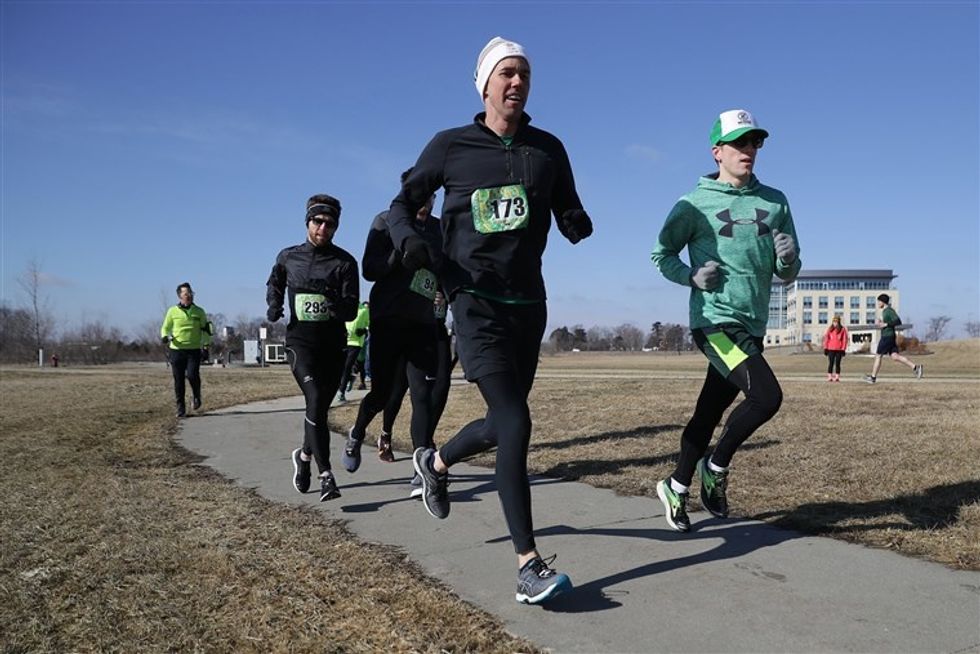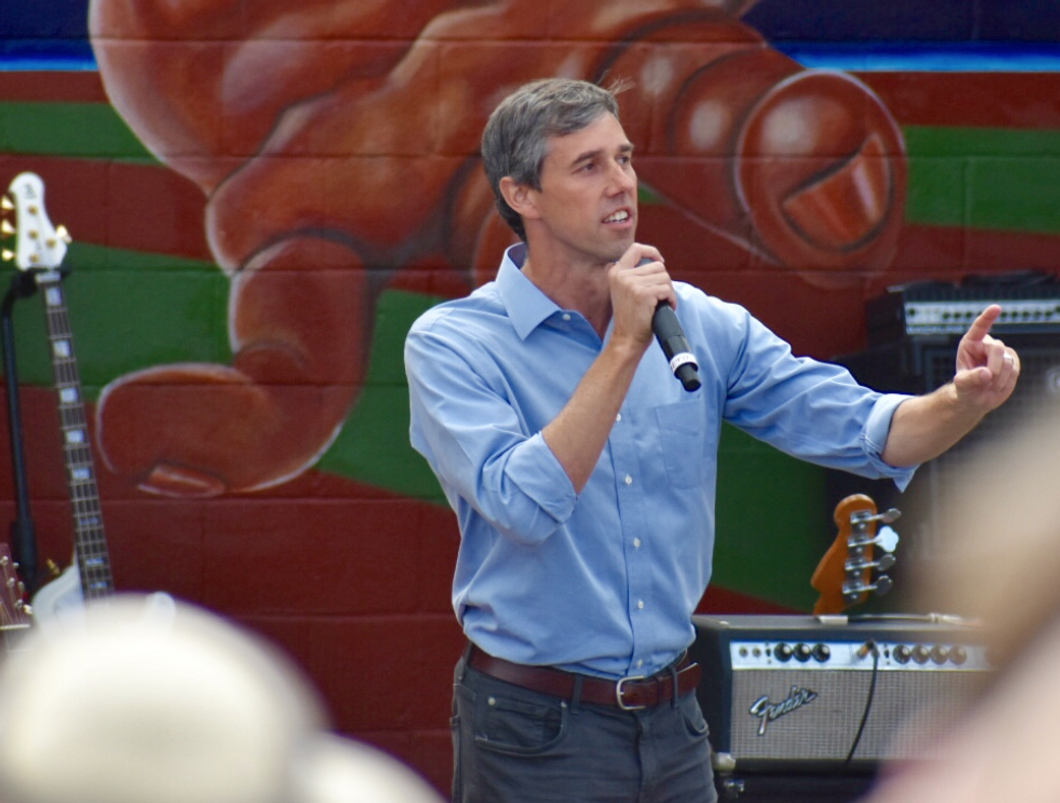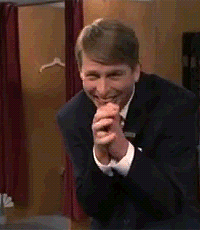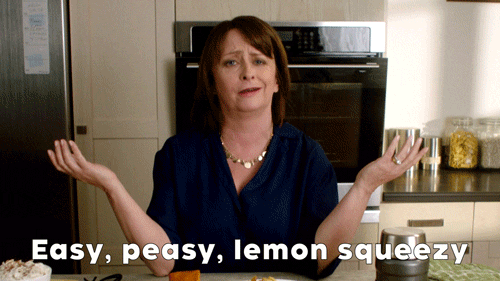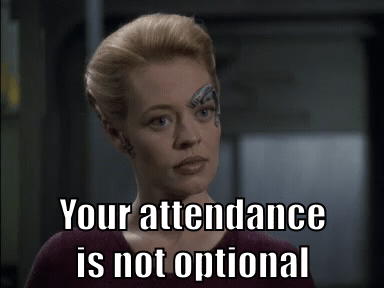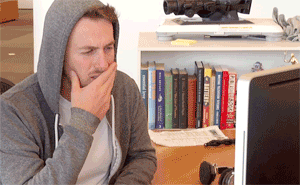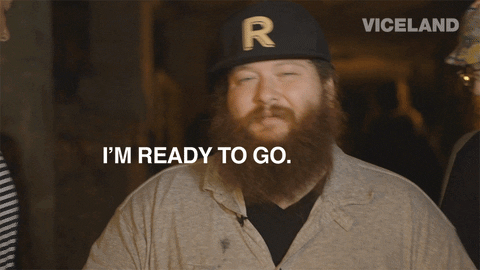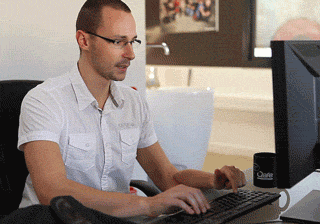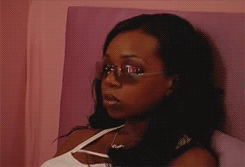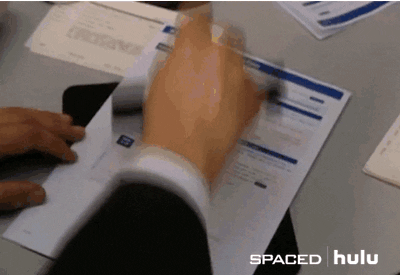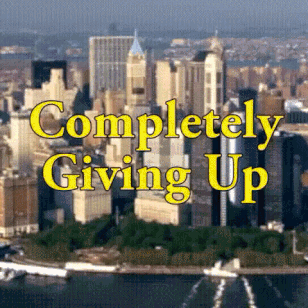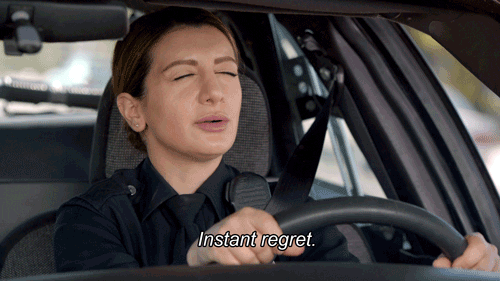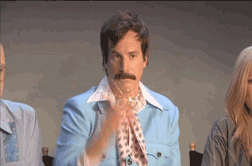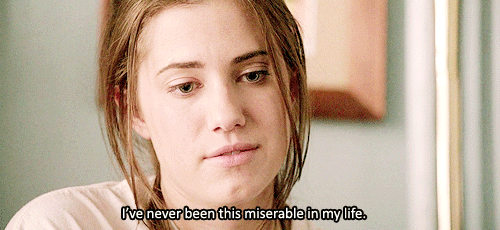Splashed across the cover of Vanity Fair this month is an Annie Leibovitz portrait that seems to capture the spirit of the American Southwest. A slender, 40-something-year-old man with wind-swept salt-and-pepper hair stands confidently on a dirt road near the Southern border of Texas, accompanied by his loyal black lab. The sleeves of his slightly dirtied light blue button-up are carefully rolled up and his hands are resting in the back pockets of his dark-wash Levi's. Look a little closer and you'll see that it is not a modern American cowboy gracing the cover, it's 2020 Presidential candidate Beto O'Rourke. A former punk-rocker and teenage hacker turned Democratic congressman, O'Rourke does not fit the cookie-cutter mold of a Presidential nominee, and that's just what makes him so popular.
With the rugged charisma of Ronald Reagan and the politics of Barack Obama, O'Rourke is anything but a conventional candidate—and the American media cannot look away.
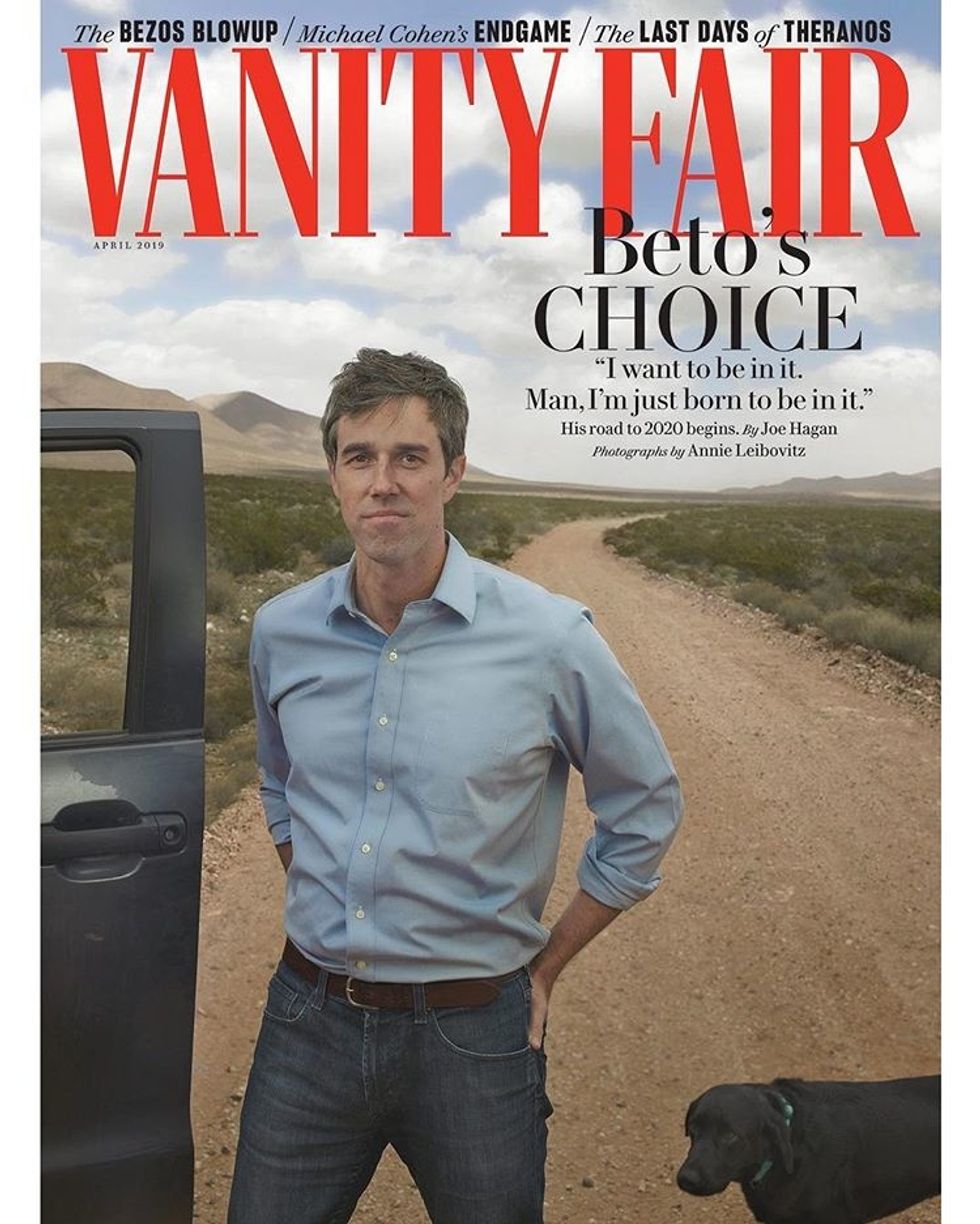
For Beto, there is no hand of a voter he won't shake, no speech he won't give, no distance he won't drive if it will bring him a step closer to winning.
O'Rourke grabbed the nation's attention as the Democratic challenger in the 2018 Texas race, facing incumbent Senator Ted Cruz of Texas. The media was instantly fascinated by the unorthodox methods employed by O'Rourke's campaign. Beto live-streamed from the front seat of his Dodge minivan as he drove to meet voters in all 254 counties in Texas, stopping at Whataburger for biscuits and jamming out to punk-rock music. He took a page from Senator Bernie Sanders' playbook and broke from political tradition by refusing money from PACs, a policy he is continuing in his Presidential bid. Accelerated by a viral video in which O'Rourke addressed the controversial practice of NFL players kneeling during the national anthem, word spread about a viable challenger to Senator Ted Cruz. Money flowed in from people all over the country, not just Texans. As the campaign caught steam, O'Rourke reached celebrity status. It became clear to traditional American media that something extraordinary was happening in Texas and soon, O'Rourke's name became a mainstay in discussions of rising Democratic party stars. He won endorsements from national party figures like President Obama and celebrities including Willie Nelson and Beyoncé. Voters crowded into church pews and school gyms to catch a glimpse of Beto and listened intently to the words he spoke from his heart, not a teleprompter. Rally attendees clamored to have their picture taken with him. Often captured in photographs on the campaign trail was O'Rourke's signature style: a light-blue button-down, stained with sweat as a result of his no-holds-barred campaigning style. Suddenly, the Senate seat in Texas was in play for Democrats.
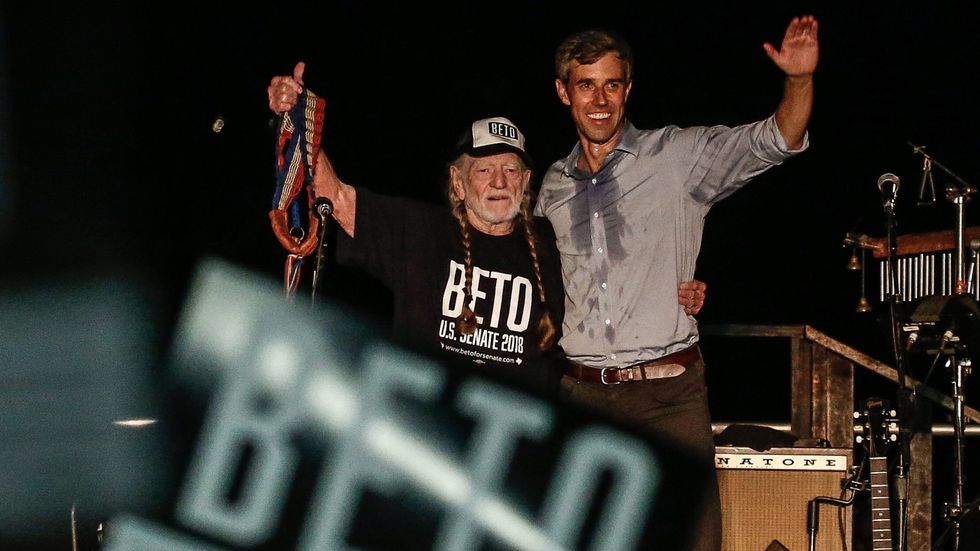
Beto was a breath of fresh air—a young, well-educated candidate who spoke eloquently and thoughtfully about the most divisive issues of our time.
Although O'Rourke eventually lost the seat by just 2 percentage points, his campaign offered a new playbook for Democratic candidates in the era of Trump. In a notorious non-voting state, 3.7 million more Texans voted in the 2018 midterms than in 2014, according to fivethirtyeight. In a border state, O'Rourke built a campaign that focused on championing the contributions of immigrants to American society rather than demonizing them and re-examining the War on Drugs. O'Rourke touched on everything from gun control to ending the mass incarceration of black men in America, he redefined what it meant to run as a Democrat in a traditionally red state. Most importantly to his supporters, he remained true to himself at every twist and turn of his campaign. Beto's campaign had no in-house pollsters, this meant no poll-tested lines in speeches and no horse-race mentality. No money funneled in from shady billionaires or special interests, the campaign was powered by the people of Texas and carried by Beto's relentless passion for change. He came at the right moment, but Texas was not ready for him just yet. America is a different story.
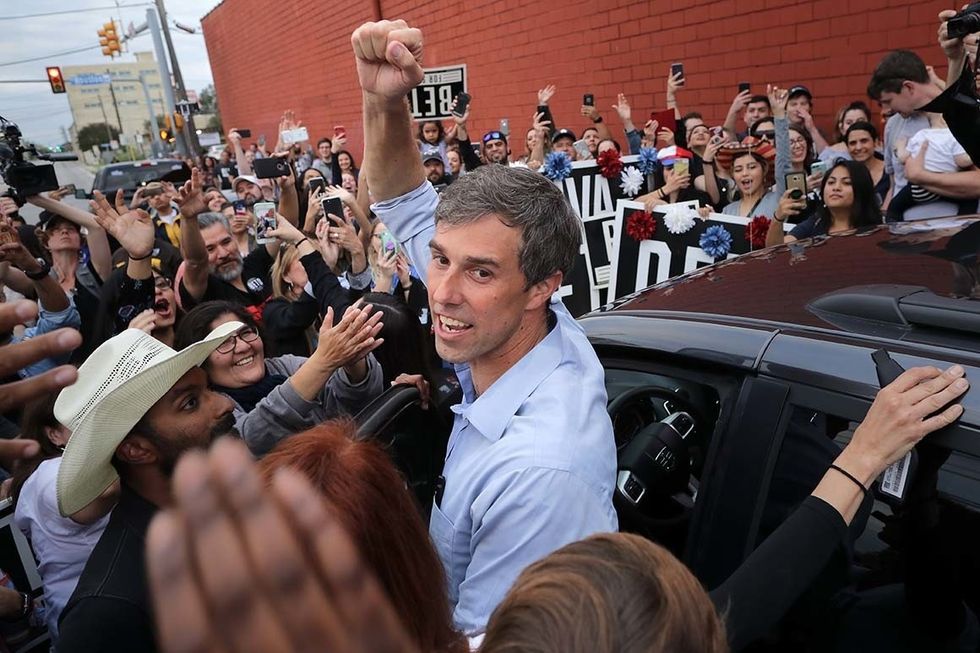
After his loss, the 2020 speculation immediately began. Former President Obama took notice of O'Rourke's campaign and met privately with him about a potential Presidential run. When Trump hosted a pro-wall rally in O'Rourke's native El Paso, Beto attended a counter-march, sending off a media frenzy about his 2020 plans. Finally, on the cover of Vanity Fair, Beto made his Presidential run official. O'Rourke got back into the driver's seat of his Dodge minivan and set out on the campaign trail. First stop: all-important Iowa, the site of the first caucus and the first official test of a campaign's viability. He is hitting the ground running, literally, by running 5Ks alongside Iowa voters. His punk rock past still influences his mentality as Beto said he's approaching his run for office with the same energy as a nationwide tour. His rallies have been known to be more like rock concerts than the stereotypical stump speeches employed by traditional candidates. Rather than rocking out, O'Rourke's time on stage will be spent giving rousing speeches like the ones that first propelled him to political stardom (although knowing Beto, there will be a few guitar solos along the way). After his announcement, he made headlines by admitting he had benefitted from white privilege and promising that his administration would not only preach the necessity of diversity but practice it as well. Beto has also built a record that emphasizes fixing the broken immigration system, ending the death penalty, legalizing marijuana, banning semi-automatic weapons, and increasing the minimum wage to $15 an hour. On every plank of his platform, Beto aligns himself with the views of the modern American Democrat and establishes himself as the anti-Trump in every way possible.
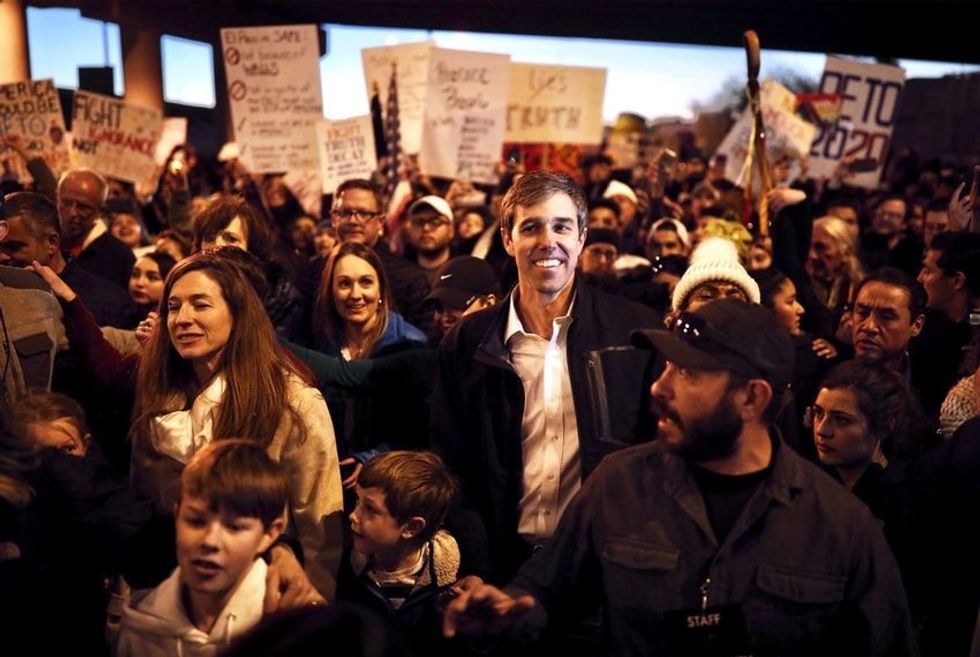
Right out of the gate, it's clear that Beto has a real shot at the nomination.
Beto has made it clear he wants no part of pandering and in a refreshing twist to traditional Presidential campaigns, he will remain his true self, no matter the political consequences (even if that means accidentally dropping profanities on live television). He may not be the most well-known candidate or have a resume as long as his arm, but shifting Presidential politics in the age of Trump show that those characteristics are becoming less important to the American electorate. Like him or not, it's clear that there is something extraordinary about him. Beto has the it-factor. He is just enough of an underdog that you want to root for him but he is by no means a long shot. He is a powerful orator who can draw crowds in the tens of thousands and somehow make a lasting impact in the hearts and minds of every attendee. He has just enough experience in government to be qualified for the job but does not have the baggage that inevitably accompanies a long political record. He runs an effective campaign like a seasoned vet but is just subversive enough to be labeled an outsider. Beto O'Rourke is a candidate that the American public can rally behind, and they have already begun to. He was initially reluctant to share his first-day fundraising data, but it has been revealed that he raised $6.1 million within the first 24 hours of his announcement (according to Axios), beating out the previous record of $5.9 million set by Senator Bernie Sanders. It is clear that O'Rourke will do whatever it takes to win, and if he can be one of the top three vote-getters in Iowa, where he is already polling well, he just may be on the ballot in the general election. He has the means to do it, and the will to get there.
One thing is clear: In the Democratic primary, Beto O'Rourke will not be ignored.
